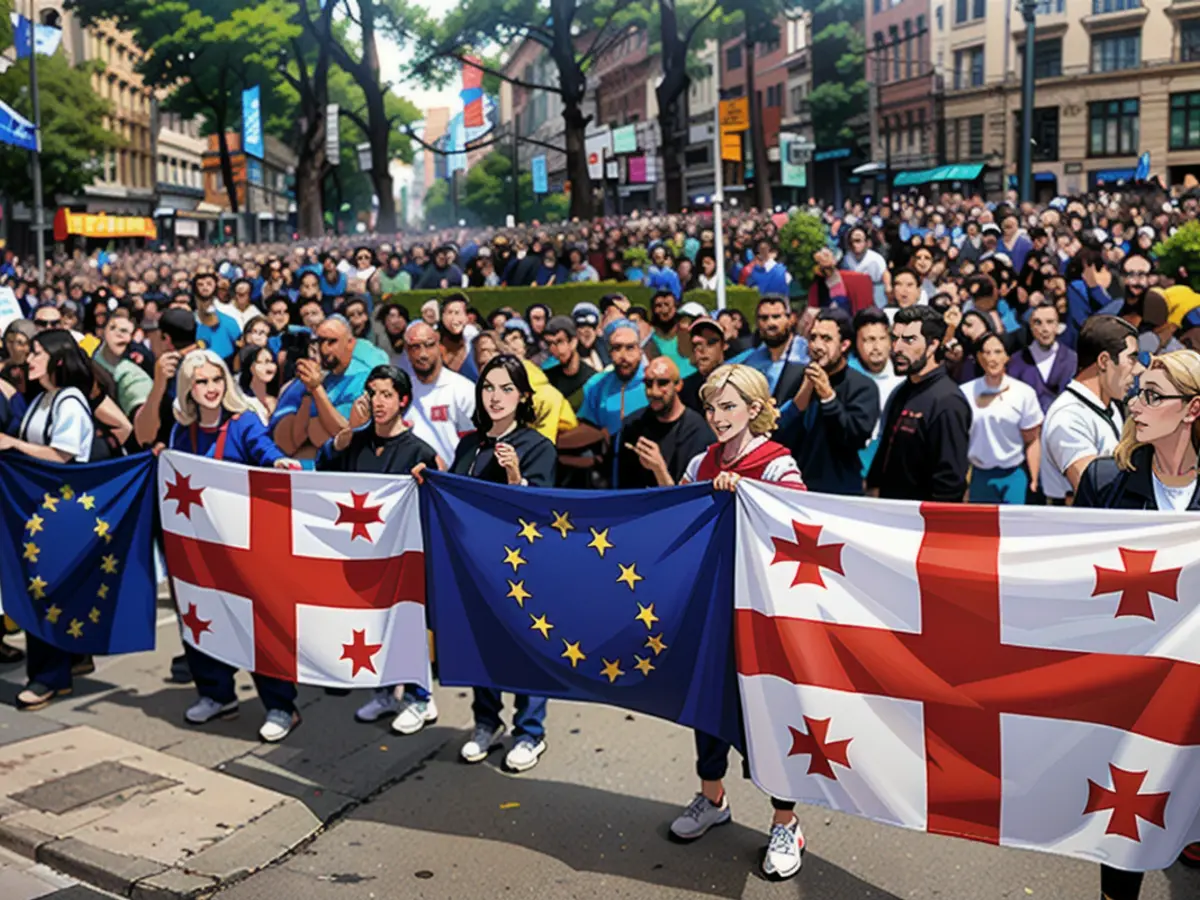Georgia's legislature enacts legislation on "external impact."
Weeks of anti-European and anti-government demonstrations have been fueled by a controversial law in Georgia. These protests bear striking resemblance to Russia's legislation on "foreign agents," which gives authorities powers to crack down heavily on dissenting media and organizations.
European Union (EU), United Nations (UN), and North Atlantic Treaty Organization (NATO) have urgently asked the Georgian government to retreat from this controversial move. Georgia has been an EU candidate country since December. The concern is that the current administration is trying to pull the ex-Soviet state back into Moscow's sphere of influence.
Read also:
- This will change in December
- Dikes withstand water masses so far - Scholz holds out the prospect of help
- Fireworks and parties ring in 2024 - turn of the year overshadowed by conflicts
- Attacks on ships in the Red Sea: shipping companies avoid important trade route
- Amidst the mass protest in Georgia, former Georgian Foreign Minister and current President, Salome Zurabishvili, faced criticism for the controversial law.
- The law, which echoes Russia's legislation on "foreign agents," has raised concerns within the European Union (EU) Parliament about the potential influence of "foreign" powers, particularly Russia, on Georgia's internal affairs.
- Given Georgia's status as an EU candidate country since December, the EU has strongly urged the Georgian government to reconsider this law, fearing it might compromise Georgia's sovereignty and stance against foreign influence, including from Moscow.
- The Georgian Parliament's decision to enact legislation on "external impact" has sparked a debate around the pressure from foreign powers on domestic policies, addling to the existing unease about the EU's potential influence on Georgia's legislation.
Source: www.stern.de







